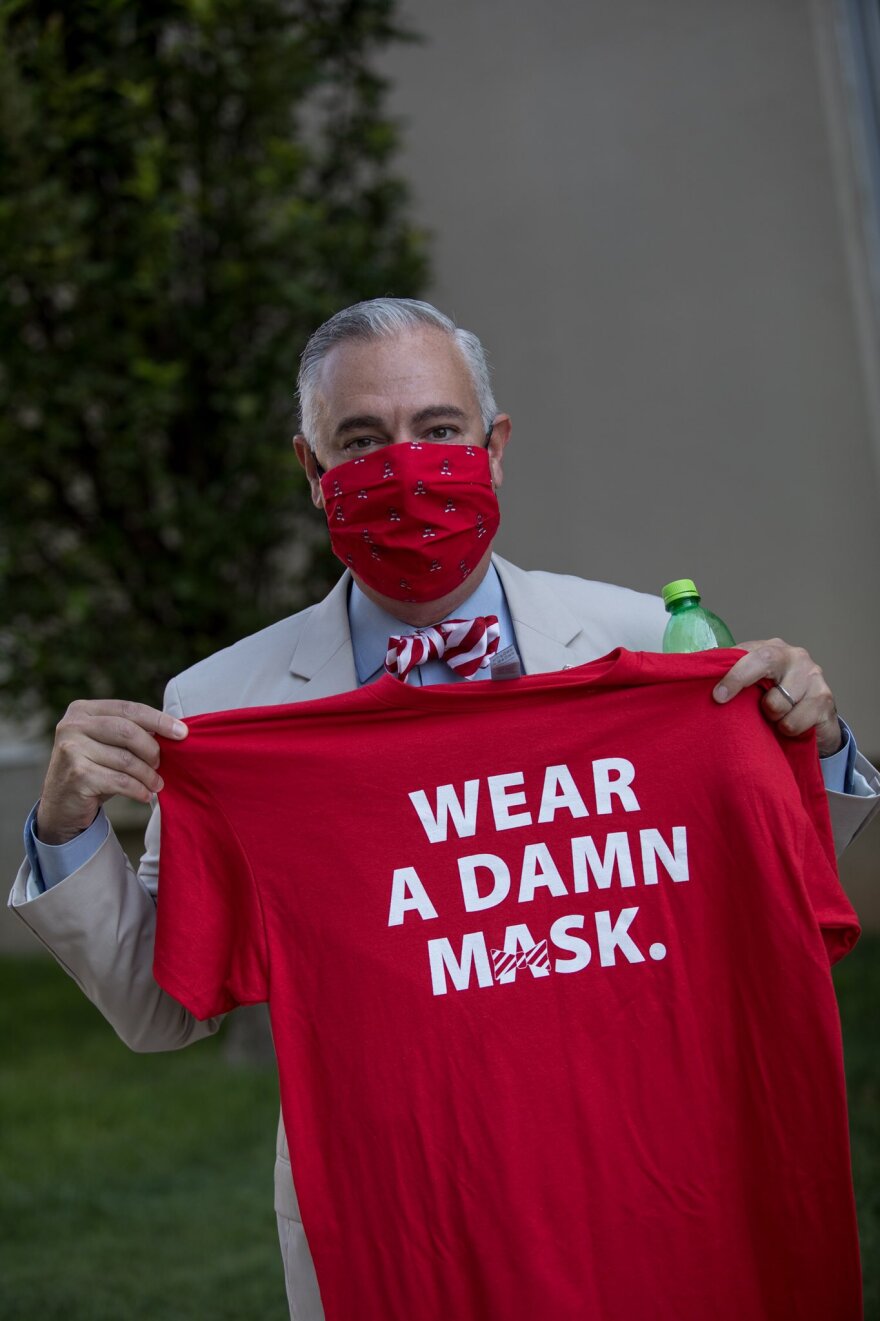Monday marked the first day of the fall semester at Western Kentucky University.
Like schools across the country, COVID-19 safety precautions and restrictions are in place, and WKU students have been given choices on attending classes in-person, or studying remotely.
Just ahead of the start of the semester, WKU President Timothy Caboni spoke to WKU Public Radio about the school’s approach to conducting the elements of higher education amid a pandemic.
On whether there’s a threshold of confirmed coronavirus cases on campus that would trigger a decision to push all classes to remote-only, instead of in-person:
“There’s a range of metrics we’re going to look at over the course of the semester, and we’ve already been watching them over the course of the summer. Some people want a light switch, where, if we hit a number, you’d flip the switch and we’d move to remote instruction. The reality is, this is going to be much for like a rheostat, or a dimmer switch.”
“It’s not just a single metric. So, it’s percent positive, it’s the number of cases, how much capacity do we have to quarantine. Those are a set of on-campus numbers that we have, our ability to contact trace, our ability to continue to do testing, our access to PPE equipment. But we also have a range of metrics that we look at in the broader community in which our campuses are located.”
“For example, in Warren County, what’s the positivity rate there? What’s the moving average per 100,000 new cases? What’s the capacity of the hospitals? What’s their positivity rate? It’s not as simple as saying, if we move from a 50 to a 51, we’re going to flip the switch. It won’t work that way.”
On what happens when a student tests positive for the coronavirus:
“We’re collaborating with the Barren River Health Dept., who actually monitors all of that for us, and will do the contact tracing. A student who tests positive will be contacted by Barren River Health, they’ll identify the contacts, Barren River Health will go through that contact procedure. That student will be asked to quarantine, isolate in place, to stay where they are, and if there’s a positive case, they have the option of quarantining on campus, or going home to quarantine.”
“We have a couple of places on campus that we’ve kept open for quarantine needs, and so we’ve got capacity to grow those numbers if needed.”
On the impact COVID-19 might have on future state support for higher education:
“As recent as last spring, there was a possibility that we were going to have more dollars flowing into higher education, and I’m thankful for the legislature and for Governor Beshear, that we were at that point.”
“And then COVID hit. So, the world we live in today is not the world we lived in five months ago in many ways.”
“As we constructed our budget for this year, we took into account the likelihood that there would be reductions in tax revenue to the state. So, we preemptively put money to the side, to be able to counter any reduction to our appropriation from Frankfort.”
“But the numbers that we’re hearing today are probably even more difficult than what we were hearing in March. And the $1.1 billion, potentially, in revenue reductions from tax receipts would be a challenge to our universities in the state, a challenge that we’ve never faced before as a commonwealth.”
“So my message to our leadership in Frankfort and in Washington D.C. is this: for us to work through this pandemic and come out on the other side successful, we need higher education to be able to produce not only the workforce, but able to support that entrepreneurial and business infrastructure ecosystem that we need to be successful.”
“If the federal government wants to do something akin to the CARES Act, where’s there a direct appropriation to higher education, that would be wonderful. If it has to flow through the state, that would be OK too. But we’re going to need, unless we want to continue the reductions from the state, we’re going to need assistance.”












